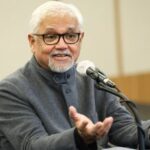|
A recent survey found that only 3% of Taiwanese people identify themselves as Chinese. 67% replied that they consider themselves ‘Taiwanese,’ while 28% said they identify themselves both as Taiwanese and Chinese.Taiwan’s Central News Agency said on the 18th that Pew Research, an American research institute, got results from a phone survey conducted between June and September last year, with 2277 Taiwanese adults aged 18 or older.The study showed that 83% of respondents aged between 18 and 34 had said they identify themselves as Taiwanese, and 61% of respondents 35 years of age or older showed the same response.
The study also found out that one’s tendency to identify herself as Taiwanese is related to her political affiliations.
It explained that those who consider themselves Taiwanese usually support the ruling Democratic Progressive Party(DPP), which advocates the independence of Taiwan from China and has a pro-American stance.
Those who consider themselves both Taiwanese and Chinese, or just as Chinese, tend to support the pro-Chinese opposition party, the Kuomintang(KMT), the study said.
While few Taiwanese people identify themselves as only Chinese, 40% of the respondents showed that they feel emotionally connected to mainland China, and 11% even showed a strong emotional bond with China.
But while about 7 out of 10 KMT supporters feel emotionally attached to China, the ratio fell to 2 out of 10 among DPP supporters.
And while 46% of those over 35 were shown to feel emotionally connected to China, only 26% of the under-35 age group showed such a connection. This indicates that the younger generation is less inclined to feel attached to China.
Both DPP and KMT had supporters who believed China was a major threat to Taiwan, but the ratio differed between the two parties. DPP had a higher proportion (78%) of supporters who expressed this view than KMT(58%).
Conversely, a higher proportion of KMT supporters(63%) said they saw the United States of America as a major threat to Taiwan than DPP supporters (34%).
Pew Research further explained that surveys show that DPP supporters seem to prefer the United States to China, and vice versa with KMT supporters.
Only a small ratio of respondents said they are satisfied with their current living standards in Taiwan. Only 24% said they were satisfied, 32% said they were dissatisfied, and 37% said they felt “neutral.”
Responses to this question were also highly correlated to political affiliations.
While 48% of DPP supporters expressed satisfaction with their current standards, only 10% of KMT supporters showed the same viewpoint.
Pew Research explained that respondents who identify themselves more as Taiwanese than as Chinese are more likely to express satisfaction with the current living environment in Taiwan.
Meanwhile, the DPP candidate Tsai Ing-wen was elected president in the recent election held on the 13th of this month, receiving 40.05%(5.58 million) of the entire votes. The KMT candidate Han Kuo-yu followed suit, garnering 33.49%(4.67 million) of the total votes.
James Soong, a candidate from the People First Party – the second opposition party – received 26.46%(3.69 million) of the votes, exceeding the public’s expectations. The major reason for his success seems to be his focus on economic livelihood issues, while the DPP and KMT were mainly concerned with national security issues.
Which coffee franchise is number one in ‘consumer favorability’? It was ‘this place’ that beat Starbucks
‘Kim Ha-sung Blackmail’ Lim Hye-dong, suspected of swindling 3 billion won from Ryu Hyun-jin… Detention warrant issued
It’s not easy to live a long and healthy life… The reason why the expected lifespan is increasing but the healthy lifespan is decreasing is ‘this’
















Most Commented